I am headed to Detroit, MI this weekend to a conference at Lawrence Technological University. The conference is called “ALT+F4: Rebooting Community after Game.rGate.” According to the conference description:
In August of 2014, the hashtag #Game.rgate emerged online, used as a weapon deployed against women in the video game industry. Through online harassment tactics, including threats of physical violence, Game.rGate constituted an instance of digital mass mobilization deliberately attacking what was perceived to be a turn away from gaming culture’s historical association with young male players. As commentators have since noted, Gam.erGate would become a precursor to subsequent social media mass mobilizations, including disinformation campaigns, conspiracy theories, and online grievance culture.
This conference seeks to revisit the social and cultural implications of Game.rGate on its ten year anniversary. To be held over four days in September 2024, this gathering of academics, designers, and community participants is designed to extend current conversations of game development and game studies beyond the existing heteronormative, hegemonic discourses through offering an integrated, multiperspectival, digital humanities retrospective focused on the social and technological sources and afterlives of GamerG.ate.
I will be presenting a workshop with friends Timothy Welsh and Ashlee Bird entitled “A Practical Guide to Close Playing.” Inspired by all of the teaching with games that we do, the workshop
presents a set of pedagogical frames, in-game activities, and playful lessons for the teaching and analyzing of digital games, particularly in literary and humanities contexts. The only way to learn to analyze video games is to play them; the only way to develop much-needed digital proficiencies and literacies for games (and other algorithmic texts), is to theorize them. Through a play-oriented approach, this workshop offers practical demonstrations of how games make meaning and how they participate in contemporary digital culture. In doing so, it prepares teachers to train a next generation of scholars to engage and contribute to urgent conversations about AI, virtuality, diversity, representation, agency, community, and play.
Given that Tim and I just finished the full draft of our book Video Games, Literature, and Close Playing [a working title], which is forthcoming from Routledge, we will get a chance to present some of what we wrote about in the workshop. Below are a few of our framing slides and a couple of our handouts.
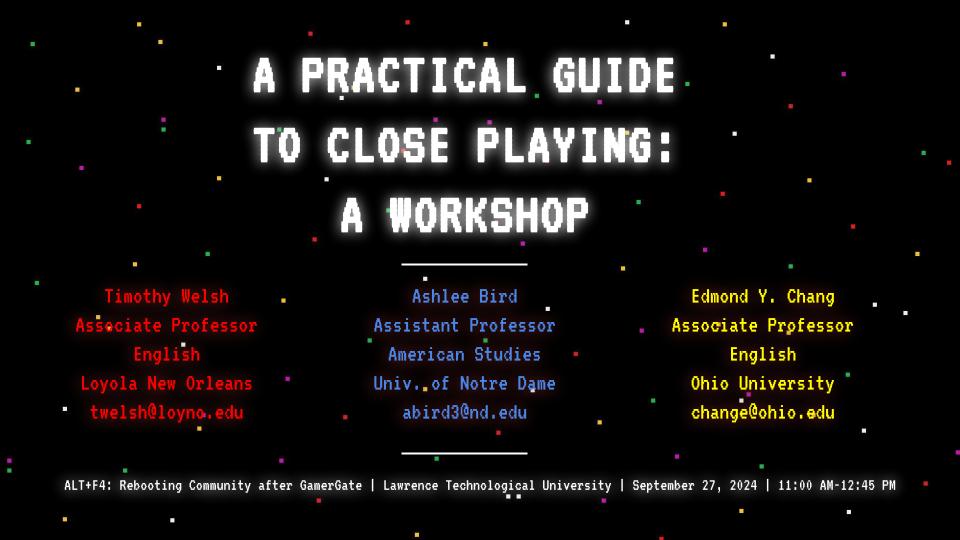
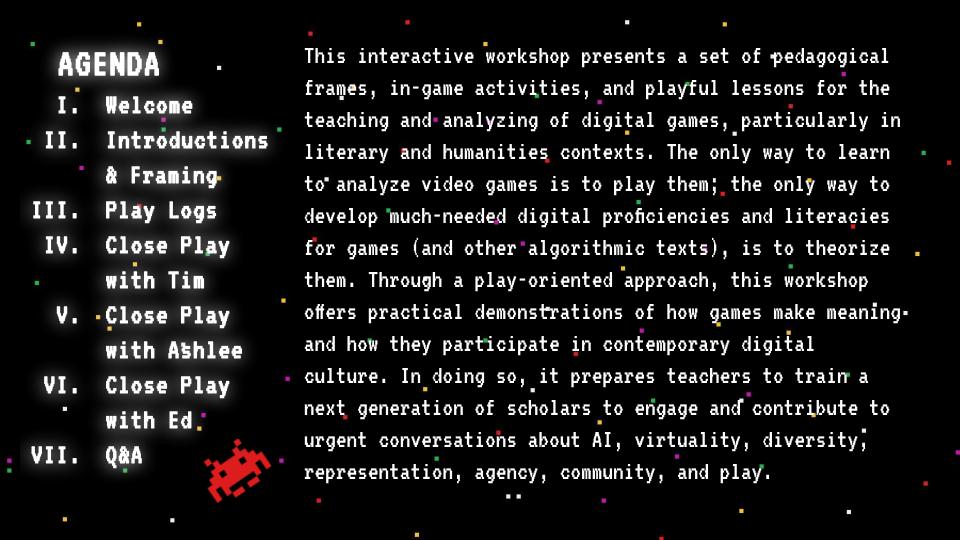
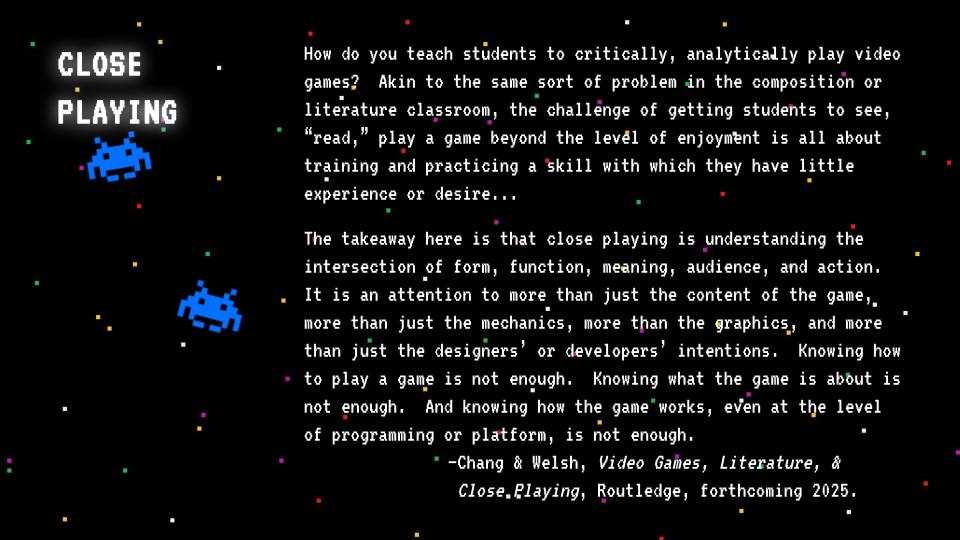
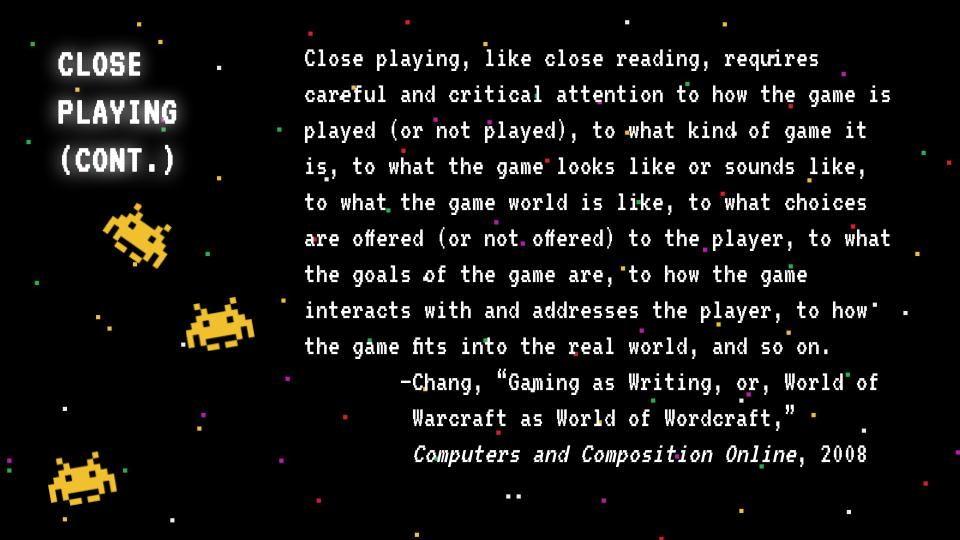
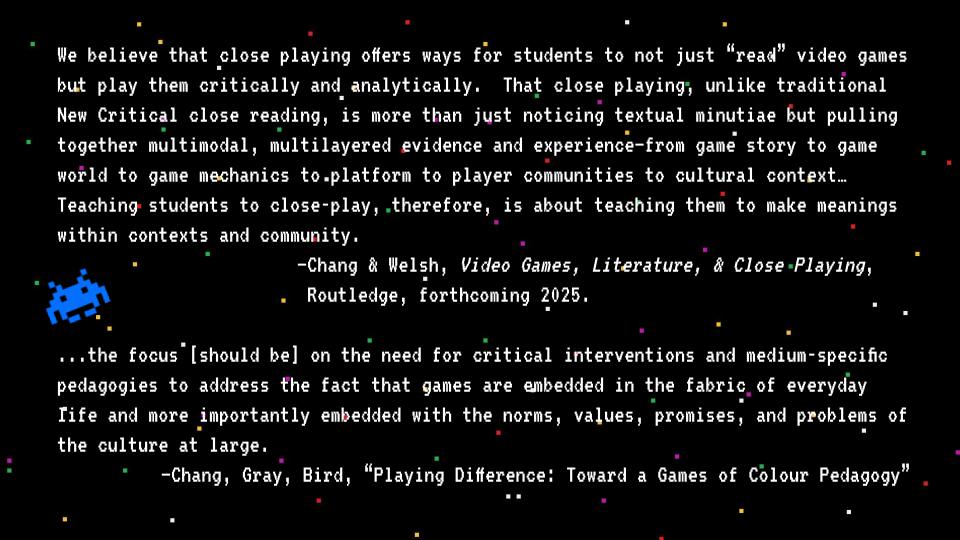
Here’s a link to the PDF of our slides: http://www.edmondchang.com/wordpress/wp-content/uploads/2024/09/A-Practical-Guide-to-Close-Playing-AltF4-2024-Slides.pdf
Link to the workshop handout: http://www.edmondchang.com/wordpress/wp-content/uploads/2024/09/2024-AltF4-close-playing-handout.pdf
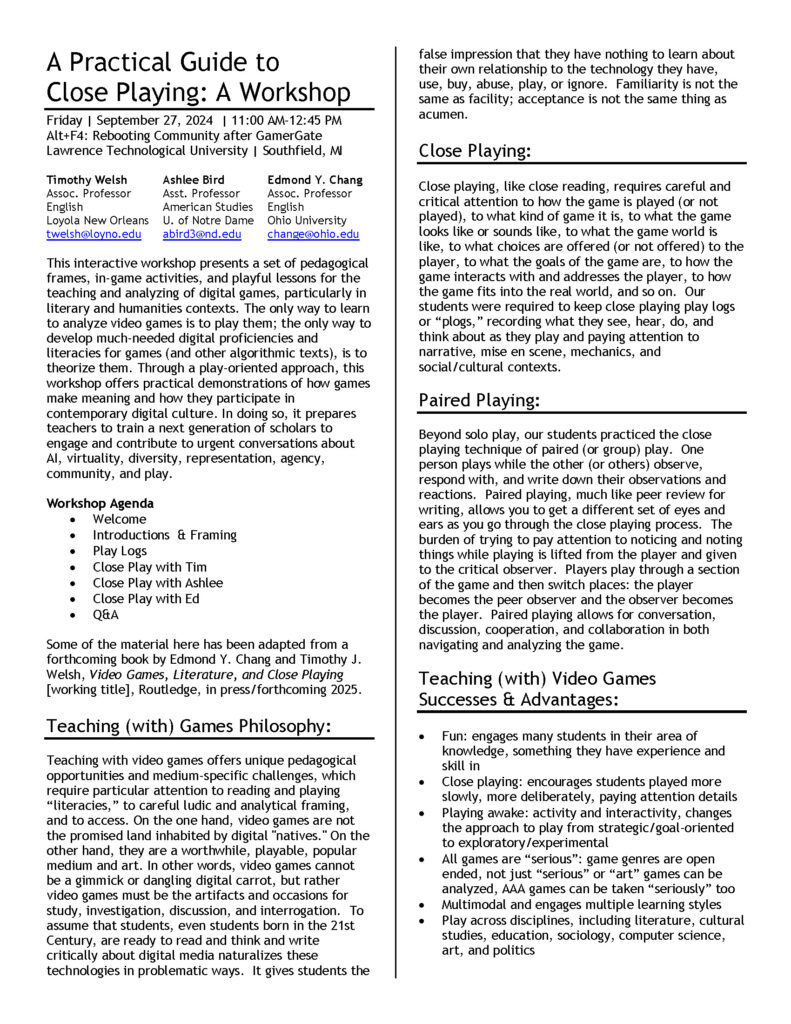
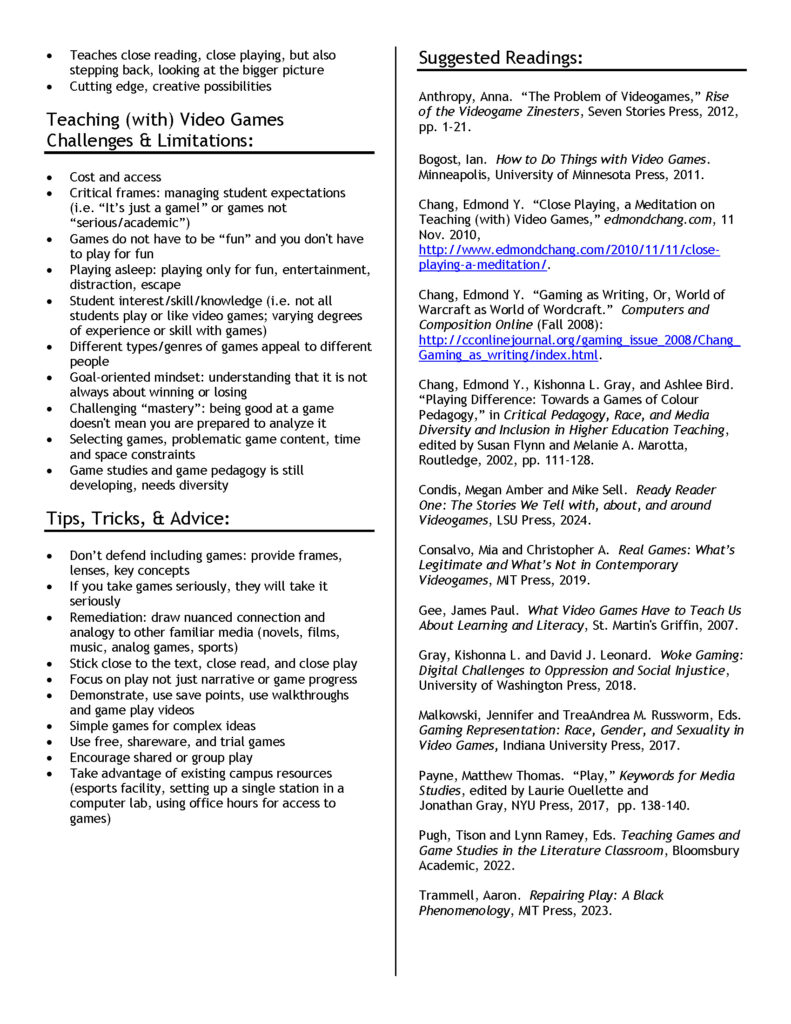
Link to the Close Playing Plog Worksheet: http://www.edmondchang.com/wordpress/wp-content/uploads/2024/09/2024-AltF4-Plog-Worksheet.pdf
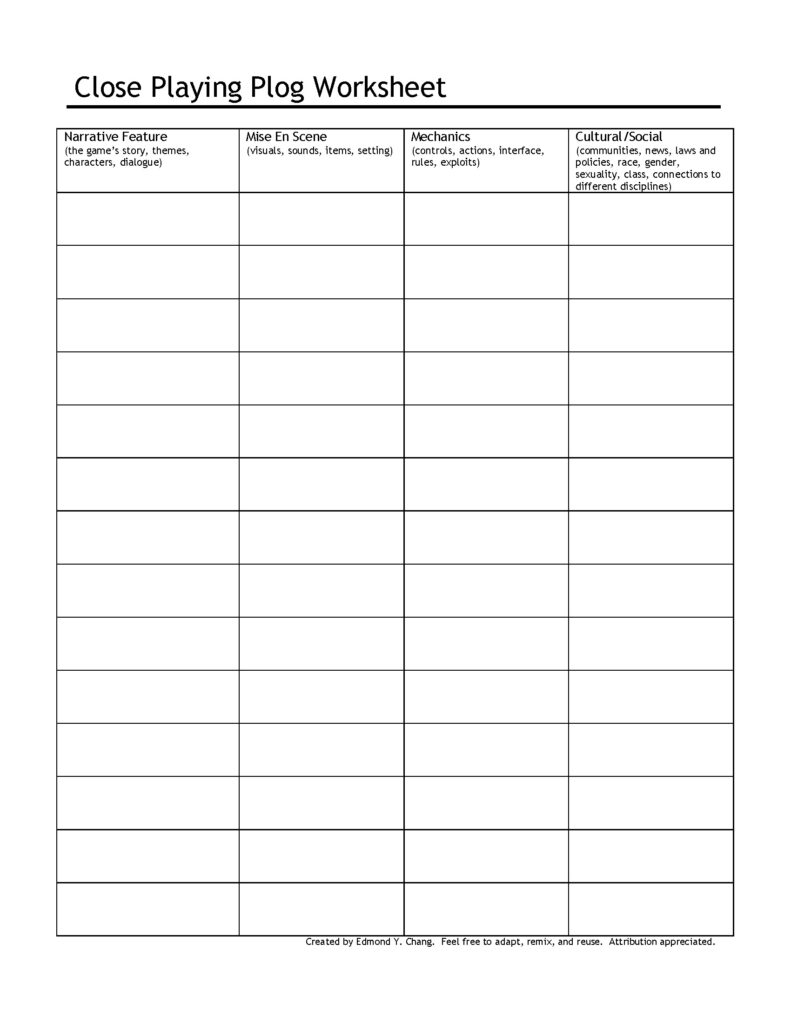
Thank you to Paul Jaussen, the organizers and staff of Alt+F4, and LTU for hosting. Looking forward to seeing some friends–like Kishonna Gray–and meeting new scholars, thinkers, gamers, and others!